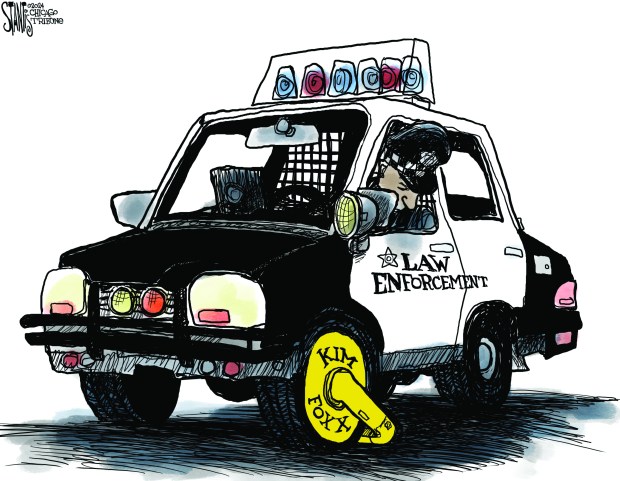Clean water has unlocked health and wealth since the beginning of time, and now it is in peril. As the risks posed by a warming planet accelerate and the world’s population grows, the need for clean water and better ways to manage it intensifies.
One-fifth of the planet’s surface freshwater sits in our Great Lakes. Demand for it will only grow, which gives us both an opportunity and a responsibility to speed the pace of water innovation. We must manage and conserve our finite fresh water as if it were a sea of diamonds.
Even our “waste” water is precious. Over the next 10 years, a bipartisan coalition called Great Lakes ReNEW will invest millions of dollars in new technologies to recover and recycle valuable minerals, such as nickel, cobalt and lithium, from our water, and remove toxic chemicals such as per- and polyfluorinated substances, known as PFAS. The goal is to destroy what’s toxic and reuse what’s valuable.
Led by Chicago-based nonprofit Current, which Alaina Harkness leads, scientists and entrepreneurs will join forces to ensure that this Great Lakes water innovation hub creates economic opportunity for all.
We do not have time to waste. Already, we waste too much of our water and the valuable materials it carries — materials we need to make batteries, electrify society and power the next wave of computing. Too much of our water is contaminated.
The first challenge is precision separation: figuring out how to get both the bad and the valuable out, en masse. The second challenge: doing it with less energy than current technology allows. We have to invent solutions that won’t contribute to the warming of our planet.
And then, the third challenge is perhaps the hardest: getting industries and governments to adopt it. And the truth is, for that to happen, it has to be affordable or proved to save companies money or be publicly subsidized with tax incentives, similar to the way electric vehicle purchases have been subsidized.
Currently, the majority of these materials are obtained from foreign nations, introducing risks to our economic security.
Similarly, extracting nutrients such as phosphates and nitrates from agricultural runoff not only stops ocean-killing algae blooms in the Gulf of Mexico but also contributes to a circular economy for fertilizers. (Did you know that most fertilizer comes from phosphate rock, a finite resource?)
While this sounds like science fiction, it is not.
Breakthrough research at Northwestern University is making progress on PFAS removal, with a prototype absorption column already in use at the Metropolitan Water Reclamation District of Greater Chicago’s O’Brien facility in Skokie.
At scale, this technology will be able to selectively separate these dangerous chemicals, which cause long-term adverse health effects, from our precious fresh water. Even better, this technology one day could be installed upstream at the source of the industrial pollution, where minerals and contaminants exist in higher concentrations and thus are easier to detect and capture.
ReNEW will also be helping nascent startups, such as Rapid Radicals, a spinout of Marquette University in Wisconsin, scale its wastewater separation technology. And in Ohio, we’ll be leveraging an industry-leading testbed in Lake Erie run by the Cleveland Water Alliance.
Achieving meaningful, measurable progress on these ambitious goals will require state leaders like us and our successors to collaborate. Protecting our water must be a consensus priority.
We like to say: Built in the Great Lakes, made for the world.
For all of human history, we’ve turned water into wealth. Turning waste into wealth is far more difficult. In this case, it’s our moonshot moment for the Great Lakes, and for climate leadership in the Midwest.
J.B. Pritzker is the governor of Illinois, Tony Evers is the governor of Wisconsin and Alaina Harkness is CEO of Current.
Submit a letter, of no more than 400 words, to the editor here or email letters@chicagotribune.com.




